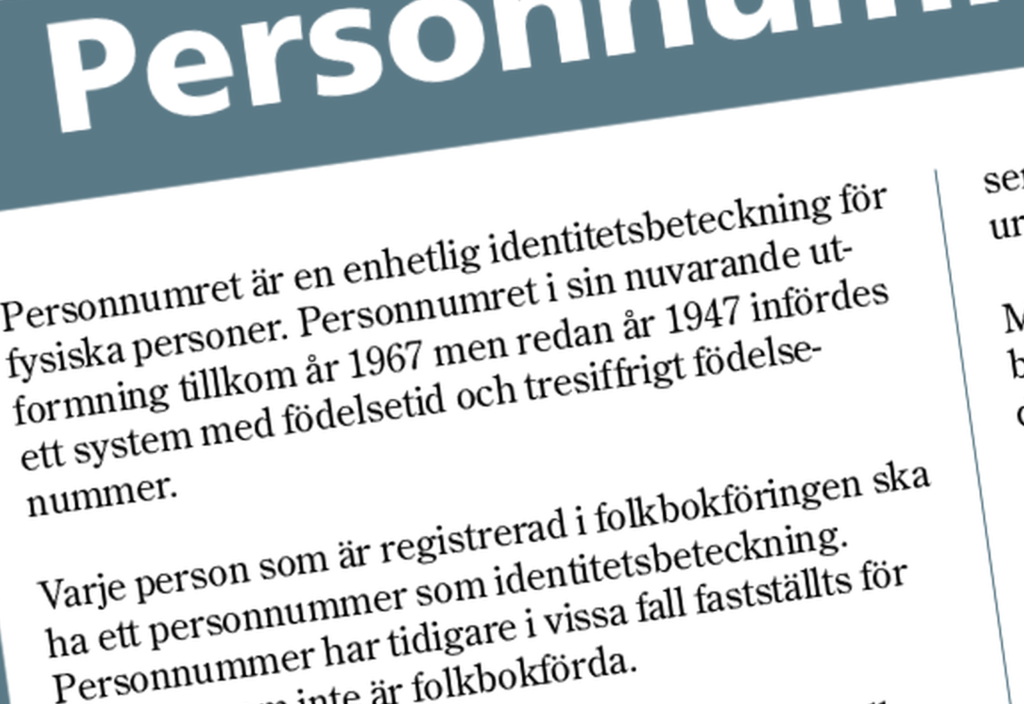Assistant professor in informatics, information architect, designer, piano player, author.
Persons – not numbers
One of my post-graduate classes tackles innovation.

We have lectures, discussions, and the mandatory readings. We also have plenty of hands-on work, in groups, with students trying to first map and understand then design or redesign some information-based system or service.
I usually give the class a list of possible, interesting guinea pigs they can work on, and since this year projects ran between multiple courses, my good friend and colleague Christina Keller also suggested a few options. Still, students have the final word, and that seems just about right considering that curiosity and personal interests here are a fundamental drive for investigation. This also makes for extremely interesting conversations when the groups are in the initial stages of the project. They have to figure out both what they want to do and how they function as a team, and with students coming from all over the world, the variety of ideas is only paralleled by the variety of opinions on what constitutes “group decision making”.
Because of this, our cases change a lot from year to year. You can be sure that something mobile will be there, but that is pretty much it. As a teacher, this is an interesting process that tells a lot about the groups themselves and their approach. This autumn we had services for conferences, refactoring of online stores, and a group that decided to try and improve a staple of Swedish life: the personnummer, the Swedish security number.
For the non-Swedes: the personnummer is much more than theone personal identifier you use everywhere.
I can’t possibly convey the complexity and the nuances that are embodied by this 12-digit number and its general significance for everyday life. You need it for opening a bank account, for a non-prepaid phone subscription, for convincing anyone selling you something larger than a meal that you are not really an international con man trying to run with their goods. It’s also your gateway to taxes, but I’d say it’s really the gateway to being a citizen. Even collecting a package at one of the many shops that do postal services can be a difficult experience if you don’t have your personnummer to show the man. It might not really be needed, but having one to show puts everyone at ease. And if you are wondering, no, passports are not really enough to clearly identify someone for your average shopkeeper: after all, they carry no personnummer.
Now, if you are a non-EU student, chances are you not only do not have a personnummer, but you are not even aware you need one. For this specific reason, JIBS has staff that helps out eligible students to apply for one as soon as they arrive for the start of the academic year in late August. The Skatteverket, the Swedish tax office, is in charge of the process, and they help as well.
Still, it is a laborious and awkwardly convoluted journey: JIBS sets things up and sends the students to the Skatteverket, where they have to fill in paper forms, all of them in Swedish. Staff supervises, corrects any visible mistake, and then manually enters the information from the forms into the system. If everything seems ok (and seems is the key word here), students are then dismissed, and while their data makes its mysterious way through the pipes from one office to another, they wait. They wait for a letter in their mail, which tells them, again in Swedish, whether or not their application was concluded successfully. If there’s no personnummer in there, a puzzled student will have to pay another visit to the Skatteverket to understand what went wrong and hopefully set it right. Then the process repeats itself. In all, not really a great experience.
This particular group in my class sported a good share of non-EU students, and as some of them experienced first person what happens when something in this interesting descent within the bowels of bureaucratic intricacy and imponderability goes wrong, they wanted to try their hand at improving, if possible, this ordeal.
They did a good job, as all other groups with their respective cases, and they documented a typical organization-centered process, with some inexplicable analog loops and where much can be possibly be made better by simply moving the perspective away from the necessity of the “system” itself to those of the people whom the process should serve in the first place.
But I’d say that the most interesting part of the conversations we had around their project was the realization that their mapping, their tracing the full customer journey of a student in need of a personnummer from start to finish had unearthed something rather interesting and peculiar.
Once you have a personnummer, pretty much everything opens up as if for an act of magic.
Not only you can open up a bank account, but most of the small bureaucratic pieces of daily life automagically get solved. While following up the success path through the service, the one where you end up with a personnummer, the students found out that then, when it comes to taxes for example, the Skatteverket suddenly can explain to you how to take care of them in more languages you could possibly master in a couple of lifetimes, and even in simplified Swedish. Forget paper forms, also: a text message is a perfectly fine solution to many a tax problem.
So, we raised the question: if this is entirely possible, and you can even pay your taxes texting, why is that that obtaining a personnummer requires so much effort? Why is the system basically setting you up for punishment? Paper forms in a language you can’t possibly understand, staff that has to type these forms in, letters in your mail, everything seems to be conjuring towards failure, or at the very least inconvenience.
Could it be that this is, intentionally or not, considered to be necessary or proper in order to see if we really mean it? Do you really want to be part of Sweden? Suffer a little, then. You will have your reward, later. You will text. Honestly, Sweden, I love you, but I’m having my doubts.
Detta är en bloggtext. Det är skribenten som står för åsikterna som förs fram i texten, inte Jönköping University.





